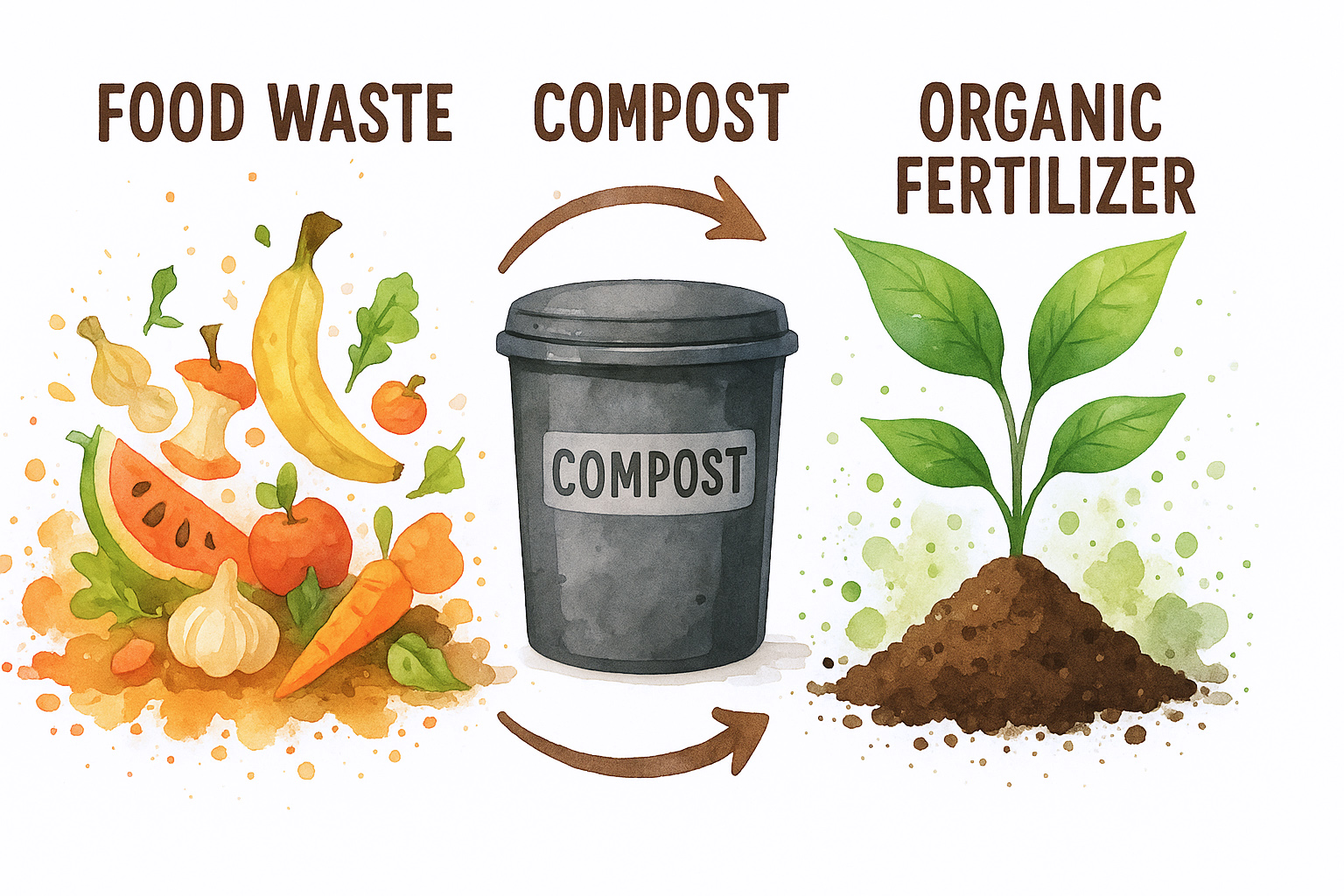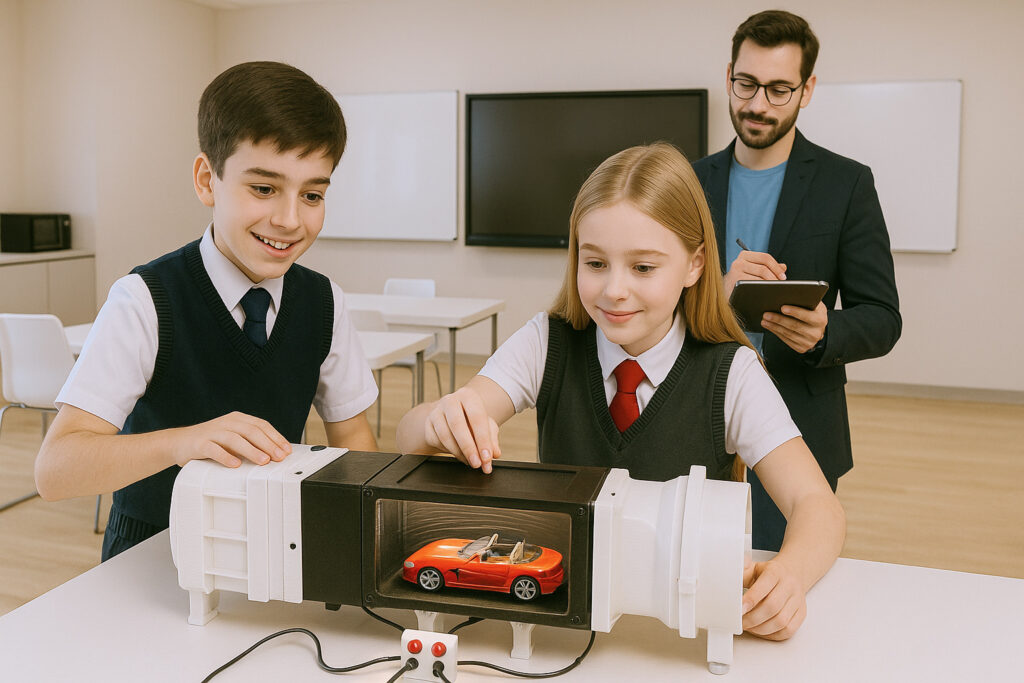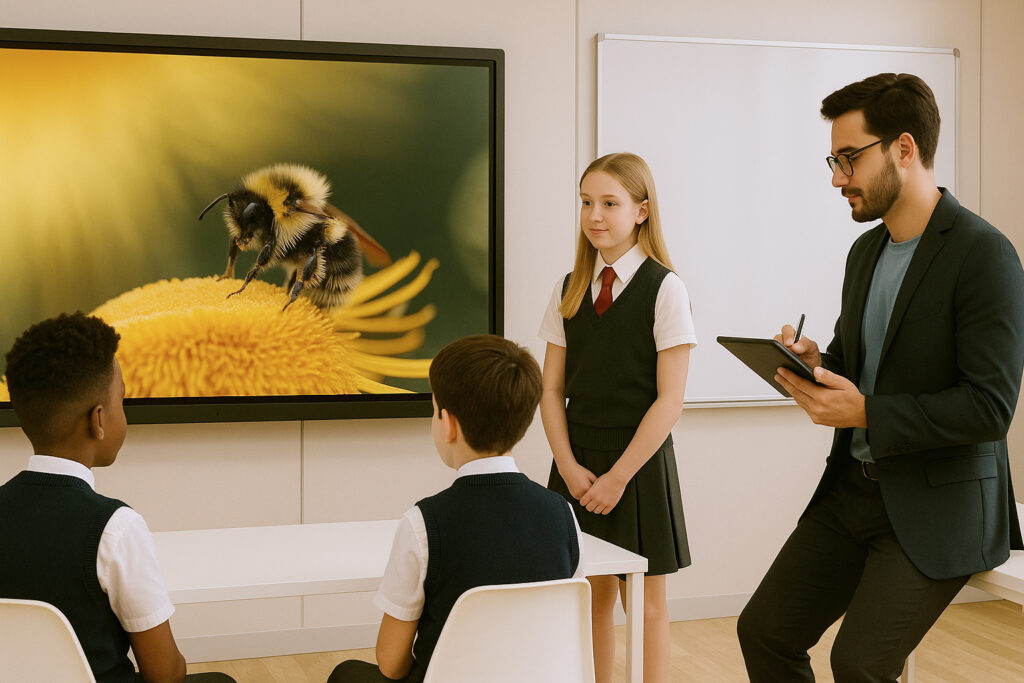WasteToGrow
Students launch a composting program using food waste from home and school. They build mini-composters, learn composting science, and use the resulting fertilizer to enrich a school garden, helping reduce greenhouse gas emissions.
- Middle School
In this sustainability-focused project, students take climate action by transforming food waste into natural fertilizer through composting. The journey begins by starting a School Composting Program, encouraging students to collect food scraps from their homes and the school cafeteria. Students then explore the science of composting, understanding the roles of carbon, nitrogen, moisture, and aeration in breaking down organic material. With this knowledge, they build their mini-composters, monitor the composting process, and manage decomposition over time. Once the compost is ready, it fertilizes the school garden, closing the loop between food, waste, and growth. Along the way, students learn how composting reduces methane emissions, improves soil health, and promotes sustainable living. This hands-on project cultivates environmental responsibility, systems thinking, and teamwork, empowering students to turn waste into a solution and make a real, regenerative impact in their community.
For more Information:

For more Information:
- Detailed Project Plan following the Engineering Design Cycle for a middle school.
- Assessment Criteria for each stage with level descriptors.
- Aligned with American Standards and practices (NGSS, CCSS, & ISTE).
- Access to the Basic ProjoTech App on any web browser.
- Digital Resources and worksheets are allocated to different tasks.
- Comprehensive Teacher Guide.
- List of required tools and devices in the school.
- Optional Skills & Standards Achievement features.
For more Information:




